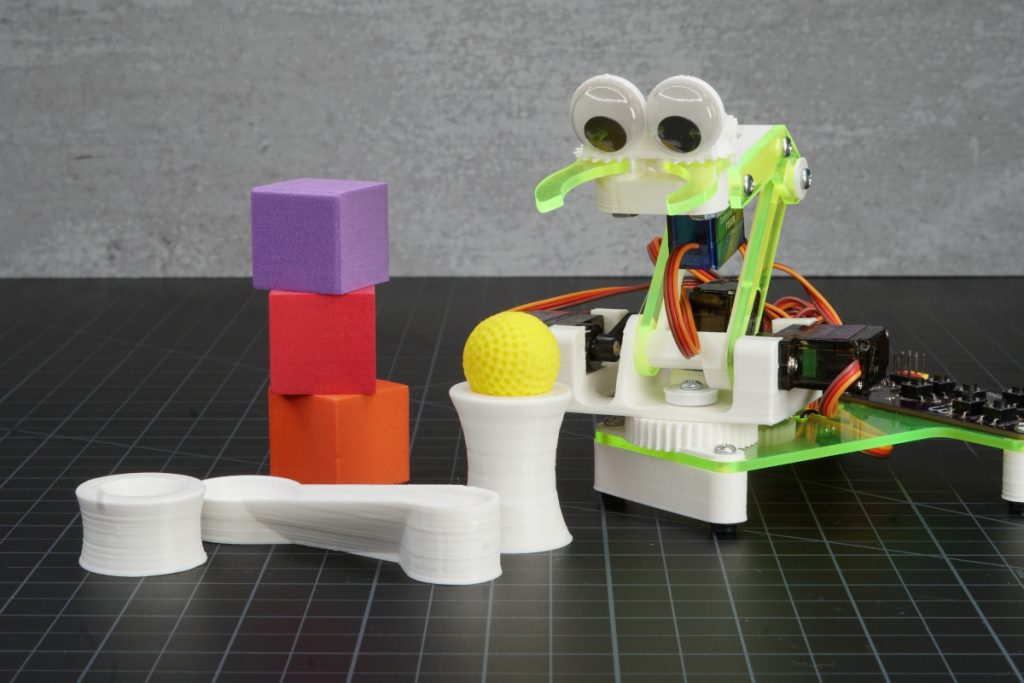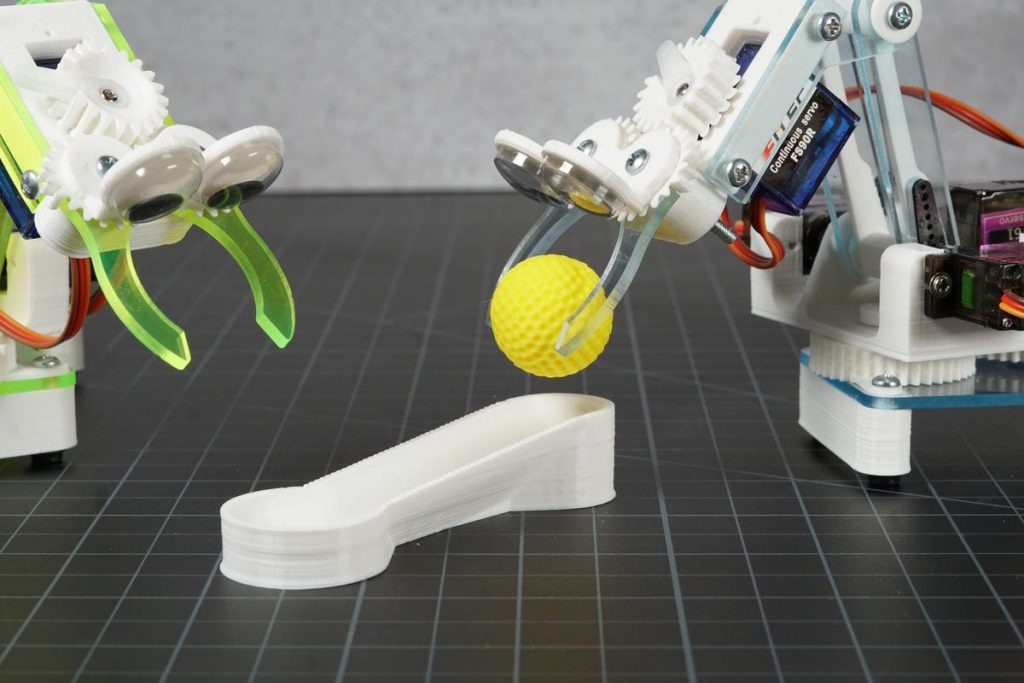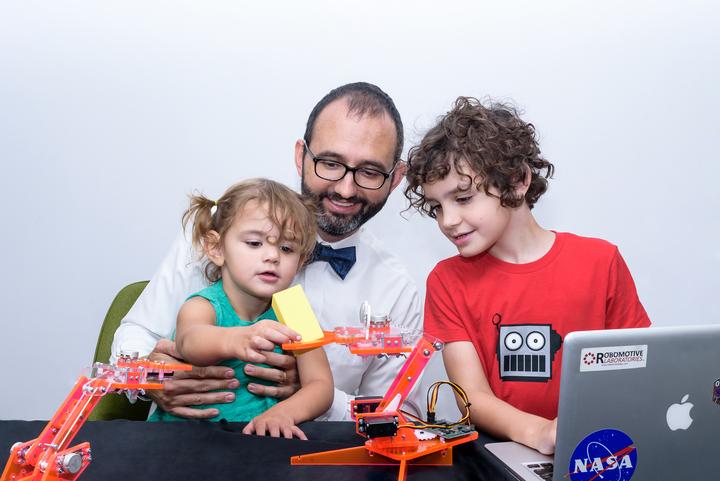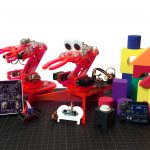
Robohub.org
MimicEducationalRobots teach robotics for the future

The robotics industry is changing. The days of industrial robot arms working behind enclosures, performing pre-programmed identical tasks are coming to an end. Robots that can interact with each other and other equipment are becoming standard and robots are expanding to more aspects of our lives. My name is Brett Pipitone, and I am the founder, CEO, and sole employee of mimicEducationalRobots. I believe that robots will soon become an inescapable part of modern life, and I seek to prepare today’s students to work with these emerging technologies.
The mimicEducationalRobots product line consists of a family of three robots. The largest and most sophisticated is mimicArm. The adorable tinyBot is small and capable. The newest robot, bitsyBot (currently on Kickstarter) is perfect for those taking the first steps into the robotics world. Despite having different features, all three robots are designed to communicate with each other and use special sensors to make decisions about their environment. Interfaces are simple but powerful, allowing users to learn quickly and without frustration.
mimicEducationalRobots believes that every student will encounter robots in their everyday life, no matter their career path. Learning robotics allows students to become comfortable and familiar with technology that is rapidly becoming commonplace in day-to-day life. Through their combinations of features, the mimicEducationalRobots products introduce technology that’s still in its infancy, such as human/robot interaction and cooperative robotics, at a level students can understand. This is why every mimicEducationalRobots robot starts with manual control, allowing students to get the feel of their robot and what it can and can’t do. Once they’ve mastered manual control programming is a smaller leap. The mimicEducationalRobots programming software simplifies this transition by reflecting the same motions the students have been making manually with simple commands like “robotMove” and “robotGrab”.
For more complex programs, mimicEducationalRobots believes that their robots should mimic industry as closely as possible. This means doing as much as possible with the simplest possible sensor. Things start small, with a great big tempting pushable button called, incidentally, “greatBigButton”. This is the students’ first introduction to human interaction as they program their robot to react to a button press. From there things get much more exciting without getting very much more complicated. For example, an array of non-contact IR thermometers called Grid-EYE allows mimicArm to detect faces using nothing but body heat. A simple IR proximity sensor allows tinyBot or bitsyBot to react when offered a block before the block touches any part of the robot. There’s even a cable that allows robots to communicate with each other and react to what the other is doing. These simple capabilities allow students to create a wide range of robotic behaviors.

mimicEducationalRobots is a homegrown business designed and built by an engineer and dad passionate about teaching people of all ages about robotics. I created the robots’ brains using a bare circuit board, template, some solder paste, and tweezers. Every component is added by hand and the board is soldered together with a toaster oven I modified. Once cooled the boards are programmed using a modified Arduino UNO R3, one of the best technological tools for beginners.

Other physical robot parts are designed using 3D modeling software and made either on a 3D printer or CNC router. I have two 3D printers in his basement running 24 hours a day, producing at least 20 robot kits a week. The CNC router requires a great deal more supervision but is capable of turning out four sets of beautiful neon plastic parts every 30 minutes.
mimicEducationalRobots is a new kind of company, producing a new kind of product, for a new kind of consumer. Their products demonstrate just how fundamental technology, and in particular open source technology, has changed our world. I hope students learning on mimicArm, tinyBot, or bitsyBot will help create the next life-changing technological leap.
To learn more about the family of mimicEducationalRobots visit www.mimicRobots.com
tags: c-Education-DIY





